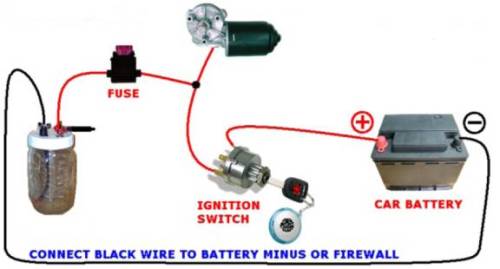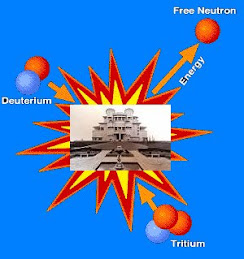So what more can be done?
By governments. Most renewable energy technologies have been researched and demonstrated. The need is now for markets, linked with ongoing research and development. Once there is competitive business from expanding demand, financiers, manufacturers and suppliers can make long term plans and prices fall. Governments can control appropriate markets by (i) increasing or decreasing taxation, (ii) awarding grants, (iii) legislating obligations, (iv) changing planning regulations, (v) changing building and manufacturing standards, (vii) transport policy, and (vi) environmental legislation. The potential for markets is learnt from research, which governments should fund in co-operation with industry.
![]() Discussion: What opportunities exist for us to influence government and local authorities about energy developments?
Discussion: What opportunities exist for us to influence government and local authorities about energy developments?
By individuals. Each of us, and our businesses, clubs and churches, can greatly change lifestyle and practice for environmental improvement, especially through our spending and investments. Examples are: insulating homes. contracting with a supplier of green electricity; investing in ethical funds; considering energy use when purchasing white goods, housing, heating plant, lighting, vehicles, travel etc; voting appropriately at elections; studying information; learning from demonstrations of good practice etc. In general it is necessary to quantify and monitor such action so we maintain awareness and responsibility.
![]() Discussion: How should energy criteria affect our individual and group purchases?
Discussion: How should energy criteria affect our individual and group purchases?
By business and industry. Obviously commerce requires continued cash flow, which arises from investment and enterprise, and is sustained by meeting market orders. Nevertheless, commerce should not blindly follow the market from others, but should operate within a code of honourable trade and innovation. This policy has an environmental dimension, which includes its own energy supplies, products and market development. Such enterprise is essential for best technology and implementation, and for best practice and sustainability. Proper utilisation of Renewable Energy is at one with efficiency, low overheads, long-term investment and minimum adverse impacts. The world-wide 20 to 30% per year growth of renewable energy implementation and of energy efficiency procedures are market opportunities that sit well with environmental integrity
![]() Discussion: Where should money be invested and why?
Discussion: Where should money be invested and why?
Further sources of information
(best obtained using web search engines with key words)
Books and reports
‘New and renewable energy: prospects in the UK for the 21st Century (supporting evidence)’ DTI and ETSU, March 1999.
‘Renewable Energy’, B. Sørensen, Academic Press, 2000.
‘Renewable Energy Resources’, J. W. Twidell and A. D. Weir, Spon Press/Routledge, revised 2000.
‘Renewable Energy -sources for fuels and electricity’, T. B. Johansson et al (eds), Earthscan, 1993.
Energy: general
UK Dept Trade & Industry (especially electricity). Key official reports and policies, with links to trade associations.
Sustainability: general
International Panel on Climate Change
UK Sustainable Development Commission
Royal Commission on Environmental Pollution
Renewable energy
European Forum for Renewable Energy Sources
International Energy Association, renewables
James & James; Renewable Energy World (directories, news, trade)
Canadian: Renewable Energy Technology (’Retscreen’)
International Solar Energy Society (ISES)
UK Dept Environment and Transport (inc. planning, buildings)
UK Dept Trade & Industry: Renewables
Danish wind manufacturers’ association
Credits
This briefing has been prepared for the JRI by Professor John Twidell (Director of the AMSET Centre and Visiting Professor in renewable energy engineering, University of Reading). Thanks are due to Sir John Houghton, Professor Colin Russell, Dr John Sale, Mr Peter Bright, Dr Mike Morecroft, Mr David Thistlethwaite and others within the JRI for their constructive comments.
“Brown Energy” Penghemat BBM 59%, mengapa tidak segera diterapkan?
Setelah beberapa bulan terakhir kita disibukkan dengan berita penemuan “Blue Energy” dari Ngajuk, Jawa Timur, maka hari ini di Harian KOMPAS kita membaca berita tentang sebuah penumuan yang tidak terlalu baru, yaitu “Brown Energy”. Mengapa dipakai kata “Brown”? Sebab penemu awalnya dari teknology ini adalah Mr. Yull Brown dari Australia pada tahun 1974.
Teknologi “Brown Energy” ini sangat sederhana, yaitu dengan menggunakan battery mobil, kita lakukan elektrolisa Air HO) yang dicampur dengan Soda Kue atau Kalium Hidroksida (KOH) guna memperlancar proses itu. Hasilnya adalah gas Hidrogen-Hidrogen-Oxygen (HHO). Has HHO ini kita campur dengan udara untuk dimasukkan ke Piston pembakaran mesin melalui Saringan Udara Karburator.
Hasilnya, mesin mobil bensin maupun mobil diesel bekerja lebih efisien dan bertenaga lebih kuat dibandingkan tanpa campuran gas HHO tersebut. Keuntungan lainnya lagi, hasil pembakaran gas HHO ini lebih ramah lingkungan dari pada aslinya, serta lebih sedikit kerak karbon yang menempel di piston mesin mobil. Efisiensi yang diperoleh bisa mencapai 59%.
Bilamana ini diterapkan diseluruh Indonesia, kita bisa menghemat konsumsi BBM sampai 59%, sehingga memungkinkan Indonesia tidak lagi mengimport BBM. Jadi kita dapat membuat harga BBM tidak lagi terpengaruh oleh fluktuasi harga BBM Luar Negeri yang sampai dengan hari ini sudah mencapai harga US$140/barrel.
Di Indonesia sudah ada tiga orang yang mengembangkan “Brown Energy” ini, yaitu pasangan sdr. Pumpida Hidayatullah dan sdr. Futung Mustari yang memakai Soda Kue sebagai campuran air , serta sdr. Djoko Sutrisno dari Yogyakarta yang memakai Kalium Hidroksida sebagai campuran air.
Sdr. Pumpida Hidayatullah dan Sdr. Futung Mustari telah memberikan presentasi ke KADIN Indonesia. Mereka juga sudah menerbitkan buku “Rahasia Bahan Bakar Air” yang disertai VCD cara membuatnya seharga Rp 40.000,- Biaya untuk perangkat tambahan bagi mesin mobil diperkirakan tidak lebih dari Rp 200.000 -300.000 dan biaya bahan bakunya sangat murah, Rp 30.000 per kg KOH yang dapat dipakai sampai beberapa minggu.
Pertanyaan kami:
1. Apakah Kementrian Negara Ristek sudah meneliti penemuan Penghemat BBM “Brown Enewrgy” ini?
2. Mengapa Pemerintah tidak segera men-sosialisasikan penggunaannya diseluruh Indonesia, agar Indonesia segera terlepas dari Krisis Harga BBM Dunia??
Semoga informasi ini membawa kesejahteraan bangsa dan negara Indonesia yang kita cintai.
Referensi:
1. http://www.brownsgas.com/
2. http://bahanbakarair.com/
3. http://waterbooster.com/

























